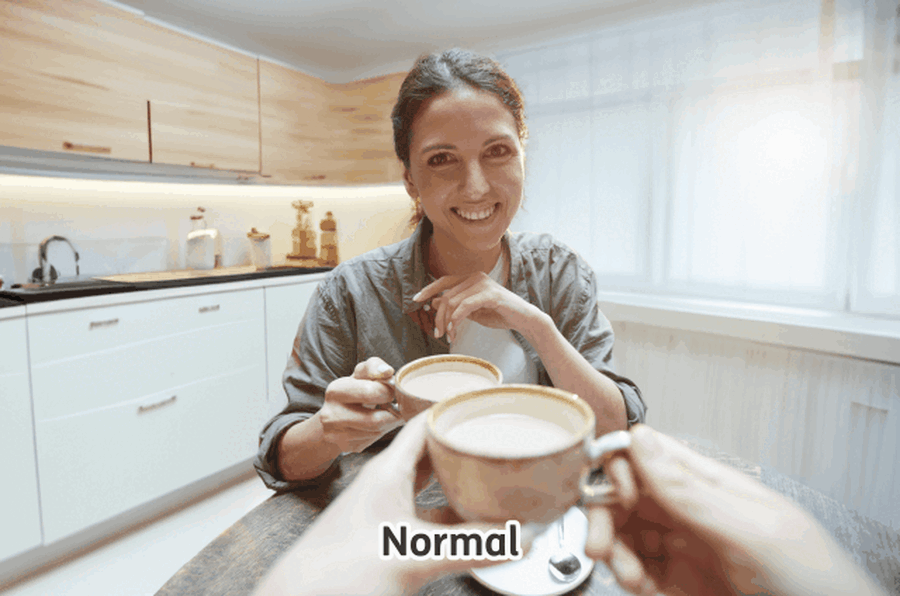Blog post
Stargardt Disease: Symptoms, Diagnosis, Blindness Risk, Driving and Genetics

Matthew Burford BSc(Hons) Optometry MCOptom - Domiciliary Optician and Professional Services Manager at OutsideClinic
5 minute read time
What is Stargardt disease?
Stargardt disease is a rare, inherited eye disease affecting the macula. This is the part of the retina responsible for sharp, central vision. It leads to progressive vision loss, usually starting in childhood or adolescence.
How common is Stargardt disease?
Stargardt disease is rare, it affects approximately one in 10,000 people and affects both males and females.
Can Stargardt disease lead to complete blindness?
While Stargardt disease significantly impairs central vision, it typically does not lead to complete blindness. Peripheral vision usually remains intact.
What are the signs and symptoms of Stargardt disease?
For people with Stargardt disease, vision loss usually starts in the centre and progresses over time. The main signs include:
- blurred vision
- distorted central vision
- difficulty seeing in low light
- trouble recognising faces
- dark spots in vision
- difficulty adapting to bright lights

How is Stargardt disease diagnosed?
If an Optometrist suspects that you have Stargardt disease, they will refer you on for further tests which would include visual acuity tests, retinal imaging, Optical Coherence Tomography (OCT) and electroretinography.
Can Stargardt disease be cured?
There is currently no cure for Stargardt disease. Research is ongoing, but treatments are focused on managing symptoms and slowing progression.
Keep up to date with research on the Macular Society website.
What’s the management of Stargardt disease?
Management includes the use of low vision aids and lifestyle adjustments such as adapting lighting, having regular eye tests, having a healthy diet and wearing UV protective sunglasses.
Some emerging treatments like stem cell therapy are under research but are not yet widely available.
Do glasses or low vision aids help with Stargardt disease?
Glasses and low vision aids are very helpful in maximising the remaining vision for individuals with Stargardt disease.
These aids can significantly enhance the ability to perform daily activities and improve overall quality of life.
If you, or a loved one, is experiencing vision difficulties due to Stargardt disease, booking a home eye test with OutsideClinic is a great step towards better vision management. Our eye care professionals can assess your specific needs and provide tailored solutions, including the latest low vision aids or prescription glasses.
You can get a 5% discount on Optelec Electronic Magnifiers by using the code TOC5 at checkout.

Is Stargardt disease genetic/hereditary?
Yes, Stargardt disease is genetic and is usually inherited in an autosomal recessive pattern. This means both parents must carry the faulty gene for their child to be affected.
Can you drive with Stargardt disease?
Driving with Stargardt disease can be challenging due to central vision loss. It is essential to have regular eye exams and consult with an eye care professional to determine if driving is safe.
In the UK, specific vision standards must be met to legally drive. The DVLA sets these standards. According to the DVLA, car and motorcycle drivers must have a horizontal visual field of at least 120 degrees. There are different standards for bus and lorry drivers.

Can diet help with Stargardt disease? Are there any foods to avoid?
A healthy diet rich in antioxidants may support overall eye health. It is advisable to avoid foods high in vitamin A, as excess amounts may worsen the condition.
What support is available?
The Macular Society offers comprehensive support for individuals affected by macular disease through a variety of services:
- Advice and Information Service: Accessible via phone (0300 3030 111) or email (help@macularsociety.org), providing expert guidance on managing macular conditions.
- Online Resources: The society's website (macularsociety.org) features a wealth of information and resources to help individuals understand and cope with macular disease.
- Peer Support Groups: Over 300 groups across the UK offer emotional and practical support, allowing people to connect with others facing similar challenges.
- Counselling and Befriending Services: Free, confidential counselling and regular friendly phone conversations through the Telephone Befriending Service help reduce feelings of isolation.
- Treatment Buddies and Skills Training: Connects individuals with experienced peers for support during treatment and offers training to enhance visual skills.
These services are designed to provide practical help and emotional support to enhance the quality of life for those living with macular conditions.


By Matthew Burford BSc(Hons) Optometry MCOptom - Domiciliary Optician and Professional Services Manager at OutsideClinic
Matthew graduated from Aston University in 2004 with a degree in Optometry.



